Exclusive 3:16 Interview with Baruch de Spinoza
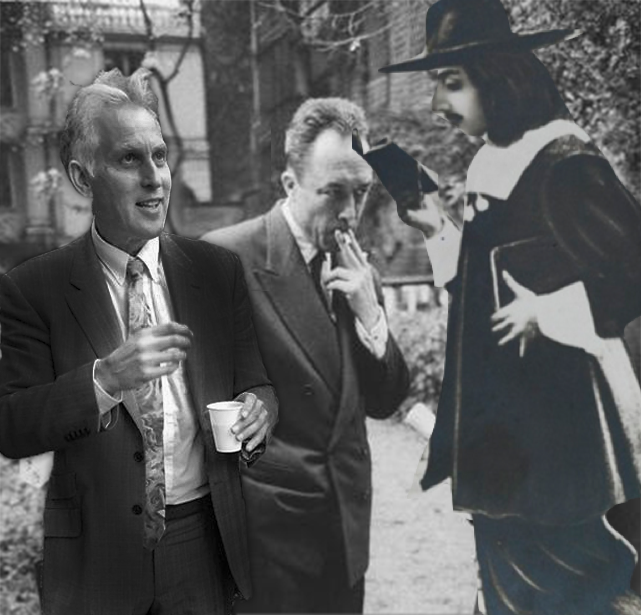
Interview by Richard Marshall
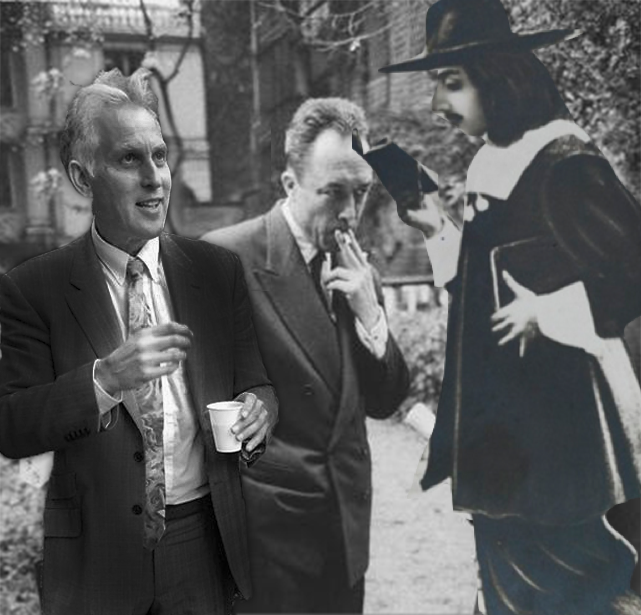
Baruch de Spinoza is a Dutch philosopher of Portuguese Sephardi origin.One of the foremost exponents of 17th-century Rationalism and one of the early and seminal thinkers of the Enlightenment and modern biblical criticism including modern conceptions of the self and the universe, he is considered one of the most important philosophers—and certainly the most radical—of the early modern period. Inspired by the groundbreaking ideas of René Descartes, Spinoza is a leading philosophical figure of the Dutch Golden Age and a lens maker.
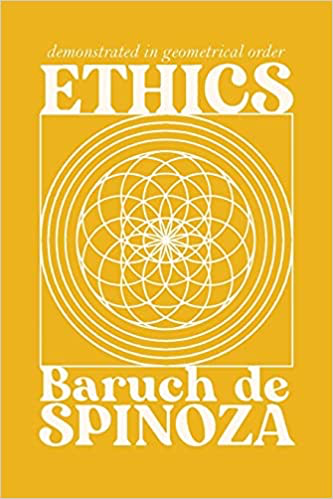
3:16: You’re out to answer the big question ‘what is there, ultimately?’ So what’s your answer?
Baruch de Spinoza: God.
3:16: Wow. That’s kind of nice and simple. But how you get there – it’s like rationalist metaphysics as geometry isn’t it? I was chatting with Nietzsche and he called it a hocus pocus of mathematical form. So I guess the big question about it is where do you get your initial definitions and axioms from?
BS: My system is a way of healing or amending the intellect. My method is reflexive knowledge, showing how the mind can be directed according to the standards of a given true idea.
3:16: Yes, but for anything like this you have to start somewhere and for a system like yours doesn’t it fail if your initial axioms and definitions are just made up?
BS: Well of course the right way of discovery is to form thoughts from some sort of definition. This will proceed the more successfully and easily the better we have defined the thing. So the second part of the Method - you’ll recall if you’ve even read it Richard - is concerned solely with your question: knowing the condition of a good definition and then the way of finding good definitions. So I’m looking for something common from which properties of the intellect necessarily follow or such that, when given, they are necessarily given, and when it is taken away, they are taken away. This is what I mean by ‘belonging to an essence’.
3:16: So you’re looking at human thought in the same way Euclid looked at geometry?
BS: Yes. I treat human affects in just the same way as planes, lines, and points.
3:16: And this is a why you don’t start off with anything we might perceive?
BS: Right. I have opposed my reasonings to Zeno’s reasonings, and therefore I have refuted him by reason, not by the senses, as Diogenes did. Look, the senses cannot provide anything else to one who is seeking the truth except the phenomena of nature, by which he is determined to investigate their causes. They can never show him that something is false that the intellect has clearly and distinctly found to be true. For so we judge.
3:16: So this is the heart of your method?
BS: Yes. This is our method: to demonstrate the things we put forward by reasons perceived clearly and distinctly by the intellect, and to regard as negligible whatever the senses say that seems contrary to those reasons. The senses can only determine the intellect to enquire into this matter rather than that one. They cannot convict it of falsity when it has perceived something clearly and distinctly. The eyes of the mind, by which it sees and observes things, are the demonstrations themselves.
3:16: Now you’re not the first to try this kind of thing. Descartes, for example, had a methodological arrangement of premises in service of his metaphysical investigation. But you do more: you are going for a metaphysical arrangement of premises as well. Can you explain why?
BS: Well, a substance is prior in nature to its affects. But though a certainty which is placed beyond any risk of doubt is found in each way of demonstrating they are not equally useful and convenient for everyone. For since men are completely unskilled in the Mathematical sciences and quite ignorant both of the Synthetic method in which they have been written, and the Analytic , by which they have been discovered, they can neither follow for themselves, not present to others, the things that are treated, and demonstrated conclusively, in these books.
3:16: So you want to have the order of your analysis right to offset those who are looking more for novelty than truth, and Descartes didn’t do this?
BS: Exactly. It’s why many who have been led, either by a blind impulse, or by the authority of someone else, to enlist as followers of Descartes, have only impressed his opinions and doctrines to memory so they only know how to babble and chatter about them but not demonstrate anything.
3:16: Ok, fine, but you still haven’t said why you started from where you started. How do you justify your basic axioms and definitions. If you can’t then it strikes me that your whole system has no anchoring.
BS: First, deduction can help. When the mind attends a fictitious thing which is false by its very nature, so that it considers it carefully, and understands it, and deduces from it in good order the things to be deduced, it will easily bring its falsity to light. And if the fictitious thing is true by its nature then when the mind attends to it so that it understands it and begins to deduce from it in good order the things that follow from it, it will proceed successfully, without interruption.
3:16: So as we work through things rationally the intellect sorts out everything and justifies or discards thoughts as it goes along so that when you’ve done what’s left has to be the truth ?
BS: Yes. The intellect by its inborn power makes intellectual tools for itself by which it acquires other powers for other intellectual works , and from those works still other tools, or the power of searching further, and so proceeds by stages.
3:16: So you’re saying that it’s by following the deductions that we get to justify the opening axioms and definitions? Their extensions demonstrate their foundational status? So we’re engaged in both synthesis and analysis?
BS: Yes. Simply from the fact that I define God as an Entity to whose essence existence belongs, I infer several properties of him, such as he necessarily exists, that he is one alone, immutable, infinite. After all, if men would attend to the nature of substance they would have no doubt at all of the truth that it is the nature of a substance to exist. Whatever is, is in God, and nothing can be or can be conceived without God. Nothing in nature is contingent.
3:16: Why aren’t you worried by Cartesian skepticism that you might be so radically deceived that you can only be certain about the existence your own mind?
BS: Our mind first has ideas of the affections of its own body. The ideas which we have of external bodies indicate the condition of our own body more than the nature of external bodies. Order and connection of ideas is the same as the order and connection of things. And remember – nature is always the same, and its virtue and power of acting are everywhere one and the same, that is, the laws and rules of nature, according to which all things happen and change from one thing to another are always and everywhere the same. So the way of understanding the nature of anything, of whatever kind, must also be the same, namely through the universal laws and rules of Nature.
3:16: Some accuse you of being stuck in a mediaeval theological mind set – in particular the mediaeval tradition of negative theology. But you deny this don’t you - you think God is material and fully comprehensible?
BS: Well, God’s infinite essence and his eternity is known to all. All things have necessarily followed from God’s given nature and have been determined from the necessity of God’s nature to exist and produce an effect in a certain way. The human mind has an adequate knowledge of God’s eternal and infinite essence.
3:16: Yours is a voluntarist God like Descartes’ - although Descartes , like Maimonedes for example, thinks God largely incomprehensible and so in this respect is more medieaval than you are I guess. You agree with Descartes on two points though don’t you: you both think God’s causation is efficient not final causation and that God produces his effects simply in virtue of his power rather than any anthropomorphic regard for perfecting these effects. Is that right?
BS: Of course. God is an efficient cause, not only of the existence of things, but also of their essence. Things could have been produced by God in no other way and in no other order than in which they were produced. This opinion, which subjects all things to a certain indifferent will of God, and makes all things depend on his good pleasure, is nearer to the truth than that of those who maintain that God does all things for the sake of the good.
3:16: Well I can see that some religious folk won’t like that idea. Doesn’t some Jewish theology say God does things for the sake of the good?
BS: Yes. But doing that, they seem to place something outside God, which does not depend on God, to which God attends as a model in what he does, and at what he aims, as at a certain goal. This is simply to subject God to fate. Nothing more absurd can be maintained about God, whom we have shown to be the first and only free cause, both of the essence of all things, and of their existence.
3:16: Doesn’t it worry you that we’re not going to be able to see God’s goodness then? I mean, if you’re right, there’s not going to be any trace of God being good is there?
BS: Not at all. No traces of divine justice are found except where the just rule; otherwise , to repeat the words of Soloman in Ecclesiastes 9:2 , we see the same outcomes happens both in the just and the unjust, the pure and impure. And as you say, this has caused doubts about divine providence among a great many people who thought that God reigns directly over men and directs the whole of nature to their use.
3:16: Are you a monist then – the mental and physical are the same because they’re just properties of God?
BS: Of course. It follows that the order and connection of ideas is one and the same as the order and connection of things.
3:16: If substance is infinite and eternal how do you explain the origins of time and change, and if it is one and indivisible then how can there be all the separate finite things all over the place. You can’t really explain finitude can you with your static geometry?
BS: You sound like Schelling, Hegel, Novalis, Schlegel , Trendelenberg and all that motley crew. Just stop!
3:16: Fair play. So how do you understanding the notion of substance?
BS: By substance I understand what is in itself and is conceived through itself ie that whose concept does not require the concept of another thing, from which it must be formed. One substance cannot be produced by anything else. Substance is the cause of itself. By cause of itself I understand that whose essence involves existence, or that whose nature cannot be conceived except as existing.
3:16: Substances have attributes don’t they? So what’s an attribute of a substance?
BS: By attribute I understand what the intellect perceives of a substance, as constituting its essence. An attribute is whatever is conceived through itself and in itself so that its concept does not involve the concept of another thing.
3:16: And is this how we should understand God?
BS: By God I understand a being absolutely infinite, that is, a substance constituting of an infinity of attributes, of which each one expresses an eternal and infinite essence.
3:16: So your rational approach is justified because you think if an intellect reflects the true nature of substance then it has to be right, is that it?
BS: Yes. What is contained objectively in the intellect must necessarily be in nature. There is nothing outside the intellect through which a number of things can be distinguished from one another except substances or, what is the same, their attributes, and their affections.
3:16: If God is indivisible how can God consist in an infinity of attributes?
BS: Jeez! He doesn’t! All we have is one and the same thing which is explained through different attributes.
3:16: But Cartesians would want to know how a substance can have more than one principle attribute? They’d say you are being absurd.
BS: It is far from absurd to attribute many attributes to one substance. Indeed nothing in nature is clearer than that each being must be conceived under some attribute, and the more reality, or being it has, the more it has attributes which express necessity, or eternity, and infinity. And consequently there is also nothing clearer than that an absolutely infinite being must be defined as a being that consists of infinite attributes, each of which expresses a certain eternal and infinite essence. So the more being or reality a being has the more attributes must be attributed to it.
3:16: And how does this help establish the existence of God?
BS: Simple. The more attributes I attribute to a being the more I am compelled to attribute existence to it, that is, the more I conceive it as true. It would be quite the contrary if I had feigned a Chimera, or something like that.
3:16: But if an attribute really constitutes the essence of substance why do you refer to the intellect at all in your definition of an attribute.
BS: All the distinctions we make regarding the attributes of God are only distinctions of reason – the attributes are not really distinguished from each other. God is a most simple thing.
3:16: Ok, so you have substances and attributes and you also have modes. What’s a mode then, and how is it different from substance?
BS: By mode I mean the affections of a substance, or that which is another through which it is also conceived. I conceive of the existence of substance to be entirely different from the existence of modes. The difference between Eternity and Duration emerges from this. For it is only of Modes that we can explicate existence by duration. We can explicate the existence of Substance by Eternity – that is, the infinite enjoyment of existing or of being.
3:16: So are you saying that we are not parts of God but modes of God? In fact. Are you saying that things in nature like people, trees and baboons are all modes of God.
BS: Yes.
3:16: And is this why you think everything is necessarily so?
BS: Yes. In nature nothing is contingent, but all things are determined from the necessity of the divine nature to exist and produce an effect in a certain way. Things could have been produced by God in no other way and in no other order than they have been produced.
3:16: So this is why you claim to be a necessitarian, even though intuitively it seems to be just wrong?
BS: It is the nature of Reason to regard things as necessary not as contingent.
3:16: Do you think everything has an explanation, that no aspect of the world is fundamentally incomprehensible. Are you committed to this principle of sufficient reason in your work?
BS: Of course. Whatever cannot be conceived through another must be conceived through itself. From a determinate cause the effect follows necessarily, and conversely, if there is no determinate cause, it is impossible for an effect to follow. The cognition of an effect involves and depends on cognition of its cause.
3:16: This sounds like you’re a proto-mechanical naturalist and a pro-science guy, part of the radical Enlightenment thinking of your time. Would that be a fair assessment?
BS: Well, be certain, the universal history of Nature is the foundation of philosophy. From universal axioms alone the intellect cannot descend to singulars since axioms extend to infinity, and do not determine the intellect to the contemplation of one singular thing rather than another. The definitions of natural things are to be inferred from the different actions of nature.
3:16: You’re skeptical about empirical knowledge aren’t you however – Descartes thought things are too complex for us to understand them. Do you agree with him in this?
BS: Let us conceive now, if you please, that there is a little worm living in the blood. It would live in the blood as we do in this part of the universe, and would consider each particle of the blood as a whole, not as a part. Nor could it know how all the parts of the blood are restrained by the universal nature of the blood, and compelled to adapt themselves to one another, as the universal nature of blood requires, so that they harmonise with one another in a certain way. So let’s be honest here, as to the parts of nature are really associated and each part aggress with its whole, I tell you I am in ignorance. We are completely ignorant of the very order and connection of things, that is, of how things are really ordered and connected.
3:16: So is what we think is going on just imagination?
BS: Well, since things we can easily imagine are especially pleasing to us, men prefer order to confusion, as if order were anything in nature more than a relation to our imagination. It would be impossible for human infirmity to follow up the series of particular mutable things, both on account their multitude, surpassing all calculation, and on account of the infinitely diverse circumstances surrounding one and the same thing, any one of which may be the cause of its existence or non-existence.
3:16: What with your rationalism, your geometric approach and all that, is it fair to say that you think the book of nature is written in mathematics and that measurement is the way to guide us towards truth in the line of others like Galileo, Descartes, Newton and Hobbes?
BS: Not really. Measurement, time and number are nothing but modes of thinking. So it is no wonder that all those who have striven to understand the course of nature by such notions – which in addition have been badly misunderstood – have so marvelously entangled themselves that in the end they have not been able to untangle themselves without breaking through everything and admitting even the most absurd absurdities. For since there are many things which we cannot at all grasp by the imagination but only by the intellect (such as substance, eternity etc) if someone strives to explain such things by notions of this kind, which are only aids of the imagination, he will accomplish nothing more than if he takes pains to go mad with his imagination.
3:16: OK. Surprising! Now one of the things that strikes many people when they read your stuff is that it looks like there’s no place for humans in it. It looks like a centreless monism with a Gods perspective on reality. And it makes me wonder where ethics comes in to this if that’s all we’ve got. You say there’s no good or bad in God – that it’s a difference that only makes sense in the finite human mind. So what’s this human mind that seems to be able to make a distinction that God can’t?
BS: Steady now Richard, let's not get giddy. First, the human mind is united to the body but also what should be understood by the union of mind and body. Mind and body are one and the same thing. Human minds are not bits of God’s omniscience.
3:16: Ok, well, we’re pretty passionate beings, and are always seemingly pulled and pushed all over the place because of these things. I’m often emotionally disturbed – it seems a natural thing for many humans I think. Do you see your systematic philosophy as a way of helping us cope with our troubled minds?
BS: Well, the mind’s highest good is the knowledge of God, and the mind’s highest virtue is to know God.
3:16: So you’re saying I should aim to perfect my reason and intellect to try and control my passions?
BS: Yes. In life it is especially useful to perfect, as far as we can, our intellect or reason. In this one thing consists man’s highest felicity or happiness. If we separate emotions from the thought of an external cause and join them to other thoughts then the love or hate toward the external cause is destroyed as are the vacillations of mind arising from these affects. An affect which is a passion ceases to be a passion as soon as we form a clear and distinct idea of it. The more an affect is known to us then the more it is in our power and the less the mind is acted upon it. There is no affection of the body of which we cannot form a clear and distinct concept.
3:16: So this is what happiness is for you?
BS: Happiness is nothing but that satisfaction of mind that stems from the intuitive cognition of God. Perfecting the intellect is nothing but understanding God, his attributes and his actions, which follow from the necessity of his nature. So the ultimate end of the man who is led by reason, that is, his highest desire , by which he strives to moderate all the others , is that by which he is led to conceive adequately both himself and all things that can fall under his understanding.
3:16: So is your therapeutic approach to passions and so forth to destroy them - a bit like Stoicism or Buddhism?
BS: The result will not only be that love, hate etc are destroyed but also that the appetites or desires which usually arise from such an affect cannot be excessive.
3:16: It seems that loving God takes out all the things that make life worth having – passions such as love and hate make my juices flow.
BS: Not at all Richard. He who understands himself and his affects clearly and distinctly rejoices, and this joy is accompanied by the idea of God. Hence he loves God and does so the more he understands himself and his affects.
3:16: I don’t know whether that works for me. I kind of hate that way of thinking.
BS: Richard, no one can hate God.
3:16: But it seems very ascetic and asceticism makes me feel sad.
BS: In so far as we understand God to be the cause of sadness, we rejoice.
3:16: You’re a naturalist and anti teleological aren’t you?
BS: As I’ve already made clear, the laws and rules of nature are always and everywhere the same. Humans are not a dominion within a dominion. Others have maintained that the Gods direct all things for the use of men. Nature has no end set before it and all final causes are human fictions.
3:16: So do you deny that humans have free will?
BS: The striving by which each thing strives to persevere in its being is nothing but the actual essence of the thing. Nothing exists from whose nature some effect does not follow. Anyone who gives this a little thought will see that if a thing should, from necessity of his own nature, strive not to exist is as impossible as that something should come from nothing.
3:16: So suicide is impossible?
BS: Quite.
3:16: So what’s the relation of this striving to will, appetite and desire.
BS: When striving is related only to the Mind , it is called Will; but when it is related to the Mind and Body together it is called Appetite. This Appetite, therefore, is nothing but the very essence of man, from whose nature there necessarily follow those things that promote his preservation. And so man is determined to do those things. Between appetite and desire there is no difference, except that desire is generally related to men insofar as they are conscious of their appetite. So desire can be defined as appetite together with consciousness of the appetite.
3:16: So what about free will then?
BS: Richard my dear man, those who believe that they do anything from a free decision of the mind dream with open eyes.
3:16: So freedom for you is causal self-determination?
BS: It is.
3:16: And so for you everything has a will?
BS: Yes.
3:16: And an appetite too? Even stones?
BS: Yes
3:16: Bit weird now! So what is willing or having an appetite for goodness, which I guess is where your ethical system comes in?
BS: We know nothing to be certainly good except what really leads to understanding. What we strive from reason is nothing but understanding.
3:16: This seems very austere. It’s hardly an ethical system – virtue just looks like a degree of causal power and so on. In short, despite all your God talk it seems very atheistic and bereft of any normative evaluations at all.
BS: You’re not the first to say so.
3:16: I often feel lousy but you make a big deal of feeling eternal don’t you?
BS: We feel and experience that we are eternal. By eternity I understand existence itself, insofar as it is conceived to follow necessarily from the definition alone of the eternal thing. For such existence, like the essence of the thing, is conceived as an eternal truth, and on that account cannot be explained by duration or tempus, even if the duration is conceived to be without beginning or end.
3:16: But as a human, a mode of God in your terms, I can’t possibly enjoy eternity can I?
BS: We conceive things as actual in two ways: either insofar as we conceive them to exist in relation to a certain time and space, or insofar as we conceive them to be contained in God and to follow from the necessity of the divine nature. But the things we conceive in this second way as true or real, we conceive under an aspect of eternity. If we look to men’s general opinion – even yours, we shall see that they are indeed conscious of the eternity of their mind, but that they confuse eternity with duration, and ascribe it to the imagination or the memory which they believe to remain after death. We feel and experience eternity for the mind feels those things that it conceives by understanding , no less than those things that it remembers. For the eyes of the mind, whereby it sees and observes things, are none other than demonstrations.
3:16: That’s kind of a beautiful thought. So do you think humans can live at reason’s behest?
BS: Those who believe that are dreaming of a fairy tale.
3:16: So you’re not an Enlightenment optimist are you?
BS: No. All men are born in a state of complete ignorance.
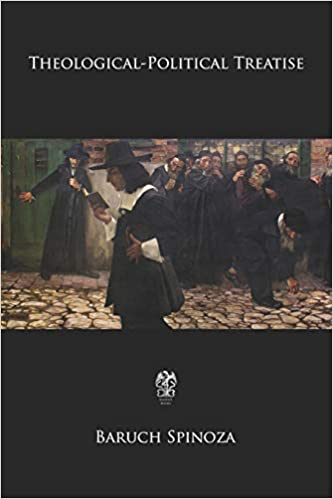
3:16: Is this why you have a philosophy of religion which takes a very different line from the God of the philosophers?
BS: Scripures’ language and reasoning is adapted to the understanding of the common people. The whole of humankind cannot have set before them a whole chain of reasoning. What God is and in what he sustains and directs all things and cares for men they can still teach and enlighten men as far as suffices to impress on their minds obedience and devotion. The scripture was written and disseminated for all men of every time and race. God is Supremely just and merciful, is one alone, is omnipresent, has dominion over everything, worship of God consists solely in justice and charity, or love towards ones neighbour, all who obey God are saved and God forgives repentant sinners because there is no one who does not sin so that without this belief all would despair of salvation.
3:16: So your philosophy of religion kind of grafts understandable pieties onto your rather cold looking, indifferent system? It's pretty Machiavellian isn't it?
BS: Those who are subject to these affects can be guided far more easily than others so that in the end they may live lives guided by reason and may be free to enjoy the life of the blessed.
3:16: Why do you reject Maimonedes and his program of legislating philosophical doctrines?
BS: Men , women and children are all equally capable of obedience by command, but not of wisdom by command. Now if anyone says that, while there is no need to understand God’s attributes, there is a duty to believe them straightforwardly without proof, he is plainly talking nonsense. This is no more indicative of their mind than the words of a parrot or a puppet speaking without meaning or sense.
3:16: Does this way of getting out a universal faith constrain the philosopher who can see through the anthropomorphism and so on and get to the hard core Reason bit?
BS: Doctrines can be construed philosophically. To the question why God is the exemplar of true life, whether this is because he has a just and merciful disposition or because all things exist and act through him, on these questions it matters not what belief a man holds. Nor again does it matter for faith whether he directs everything from free will or from the necessity of nature, whether he lays down laws as a ruler or teaches them as being eternal truths, whether man obeys God from free will or from the necessity of the divine decree, whether the rewarding of the good and the punishing of the wicked is natural or supernatural.
3:16: Isn’t there an issue with allowing non-literal readings of Scripture? What if what is being said is false?
BS: No one could know that they were conveying falsehoods. If someone knew that they were false he would necessarily be a rebel, for how could it be that one who seeks to love justice and obey God should worship as divine what he knows to be alien to the divine nature.
3:16: Was Christ just an outstanding philosopher to you?
BS: Yes. I say that for salvation it is not altogether necessary to know Christ according to the flesh but with regard to God’s eternal wisdom which has manifested itself in all things and chiefly in the human mind and most of all in Jesus Christ a very different view must be taken. For without this no one can attain to a state of blessedness. As to the teaching of certain churches that God took upon himself human nature I have expressly indicated that I do not understand what they say. Indeed to tell the truth they seem to me to speak no less absurdly than one who might tell me that a circle has taken on the nature of a square. But let’s be clear, I say rulers should serve as ministers of the churches and as guardians and interpreters of the national church.
3:16: Ok, so here’s my puzzle. You’re pretty aggressive towards Biblical religion aren’t you? You got into a lot of trouble because of this.
BS: O vey.
3:16: So how do you square this particular circle: on the one hand you have made the case as we’ve seen for the case of the authority of Scripture as a pedagogical-political program, but then on the other hand you critique religion in a way that surely rightfully puts you in the party of heretics and schismatics.
BS: I was writing to prudent readers who were prevented from giving their minds to philosophy because they were told that reason must be the handmaid of Scripture. I’m against the excessive authority and egoism of preachers.
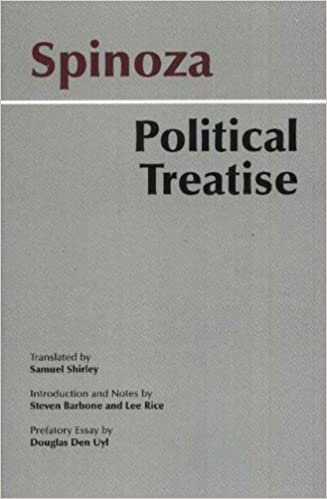
3:16: So you would have been ok with the state, like that of the relatively tolerant Dutch Republic of Johan de Witt, where you’re free to think what you like?
BS: Of course. I had the rare good fortune to live in a state where freedom of judgement is fully granted to the individual citizen and he can worship God as he please.
3:16: The de Witt brothers were murdered by an angry mob weren’t they?
BS: That mob - the ultimate barbarians!
3:16: So is your philosophy a way of guarding against any radical scepticial argument that undermines the possibility of knowledge and throws a person back on Scripture? By showing that Scripture has no literal truth and that you need reason you’re removing the cornerstone of the justification of the political enforcement of religious orthodoxy. Attacking the foundations of Biblical authority was just more efficient than trying to reason your way to this conclusion?
BS: Yes. But I do hold that we are in no way bound to believe the prophets in matters of purely philosophical speculation. Having extracted the true meaning of Scripture we must necessarily resort to judgement and reason. Beliefs about God are true when judged by reason and philosophy. Reason is the greatest of all gifts and a light divine. Accepting scripture, on the other hand, means to accept as divinely inspired utterances the prejudices of a common people of long ago which will gain hold on a person’s understanding and darken it.
3:16: So is your philosophizing and religious stuff all connected by a political agenda as well, one of ensuring people were free to reason for themselves?
BS: My treatise on religion was to combat the prejudice of theologians, to avert the accusation held by common people that I’m an atheist and to vindicate the freedom to philosophise and say what we think. So yes.
3:16: Can you sketch for us your political philosophy?
BS: Men are so constituted that they cannot live without being subject to some common law. If it is for this reason that the Scholastics want to say that man is a social animal I have nothing to say against them.
3:16: So are you a natural law theorist?
BS: Not really. By the right and established practice of nature I mean nothing but rules of the nature of each individual, according to which we conceive each things to be naturally determined to existing and acting in a certain way. For example, fish are determined by nature to swimming, and the large ones to eating the smaller; so it is by the supreme right of nature that fish are the masters of water, and that the large ones eat the smaller. Virtue is power. Likewise: the wise man has the supreme right to exist and act as it is naturally determined to do, indeed, both the wise and the weak-minded have the supreme right to do everything appetite urges.
3:16: So in a state of nature anything goes?
BS: Yes. Whether by the guidance of reason or the prompting of the affects he is permitted by supreme natural right to want and to take whatever way, whether by force, by deception, by entreaties, or by whatever other way is in the end easier. You are permitted to regard as an enemy anyone who wants to prevent you from doing what he intends to do.
3:16: This seems pretty Hobbesian.
BS: A wretched and brutal life, yes. So no one can doubt how much more advantageous it is to man to live according to the laws and certain dictates of our reason, which, as we have said, aim only at the true advantage of man. Moreover, there is no one who does not desire to live securely and as far as possible without fear.
3:16: Is this why you say we’re social?
BS: To live securely and well men were necessarily obliged to act together, in concert, and that therefore they brought it about that the right which each one had to all things, according to nature, they would have collectively, and that it would not be determined any more according to the force and appetite of each one, but according to the power and will of everyone together. It’s a Universal Law of nature that between two goods each person chooses the one he judges to be greater, and between two evils, the one which seems to be lesser.
3:16: Ok, but then, for the reasonable people, why bother having a coercive state, and for the ones who are led by passions and prejudices - how do we get to them agreeing to be in such a state?
BS: Self interest. That sovereign has the supreme right over everyone who has the supreme power with which he can compel everyone by force and hold them back by fear of the supreme punishment, death.
3:16: So this is Machiavellian practical politics not armchair politics. You’re looking at what actually keeps order not what ought to keep order. Fear of punishment maintains the state and makes people rationally cooperate by calculating benefits of such a state of affairs. This is like Hobbes too isn’t it?
BS: The difference between Hobbes and myself consists in this, that I always preserve the natural right in its entirety, and I hold that the sovereign power in a State has right over a subject only in proportion to the excess of its power over that of a subject. That is always the case in a state of nature.
3:16: You both think fear doesn’t impinge on liberty?
BS: No one will stand by his promises unless he fears a greater evil or hopes for a greater good. To understand this better, suppose a Robber forces me to promise him that I will give him all my goods when he wishes. Since, as I have already shown, my natural right is determined only by my power, it is certain that I can free myself from this Robber by deceptively promising him whatever he wishes, I am permitted to do this by natural right, to contract deceptively for whatever he wishes.
3:16: So you’re saying we can break promises whenever we want to. Doesn’t that actually undermine any chance of cooperation?
BS: Look, if men could manage all their affairs by a definite plan or if fortune were always favourable to them they would never be possessed of superstition. Be like Moses, use superstition for politics. Also, if men were not willing to give mutual assistance to one another they would lack both skill and time to support and preserve themselves as far as possible.
3:16: Is it your aim to put together a scientific conception of ‘natural law’ with a humanistic discourse of ‘civic republicanism’? Are you a Republican at a time of monarchs, putting citizens at the heart of the state, and a democrat to boot?
BS: I am. Democracy is most natural because it approached most nearly the freedom nature concedes to everyone.
3:16: You’re pragmatic though about all this and really look to see how men are rather than how they ought to be. Democracy is rare and fragile and in your time there were monarchs. If you couldn’t get rid of monarchs and have the rationally participating citizens you require for democracy, what do you recommend?
BS: The multitude can preserve a full enough freedom under a King provided it arranges it so that the King’s power is determined only by the power of the multitude itself, and is preserved by the support of the multitude itself. Same with aristocrats. We must seek ways of insuring that the rule does not gradually become concentrated in the hands of fewer men, but on the contrary, that the number of rulers increases in proportion to increases in the state. It is especially necessary to take care that the `patricians themselves are not divided into sects, some favouring one group, while others favour others, and that they do not, in the grip of superstitions, seek to take away from their subjects the freedom to say what they think.
3:16: So freedom and virtue are the important issues for your politics?
BS: Well, I follow the very shrewd Machiavelli here. Freedom of mind or strength of character is a private virtue. But the virtue of the state is security.
3:16: Obviously you are of Jewish descent. Some, like Hegel and Jacobi, argue that the Kabala is important to you. Are they right?
BS: I have read and am acquainted with a number of Kabalistic triflers whose madness passes the bounds of my understanding. So no.
3:16: On the one hand you love reason and permanence - and yet you are an explanatory naturalist, philosophize power, joy, reject the morality of good and evil, guilt and pity, and try and purge the mind of the negative and self-poisonous emotions of envy, hate, rancor and ressentiment. You’re like a weird Nietzsche.
BS: Thank you Richard. I’ll take that.
3:16: And for the readers here at 3:16, are there 5 books you can recommend to us that will take us further into your philosophical world?
BS: Sure.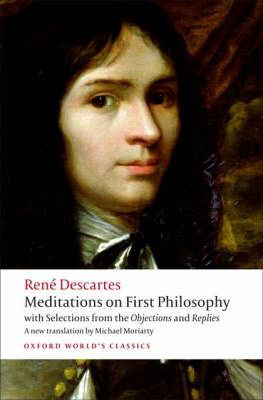
Descartes Meditations on First Philosophy
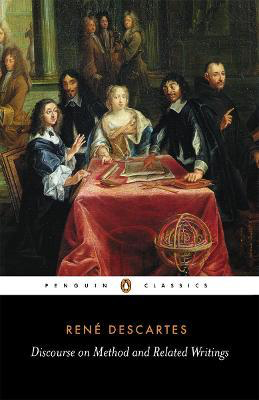
Descartes Discourse on Method
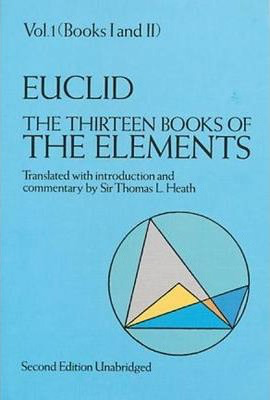
Euclid The Elements
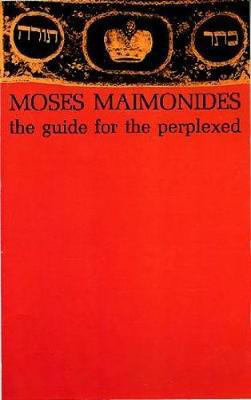
Maimonedes Guide for the Perplexed
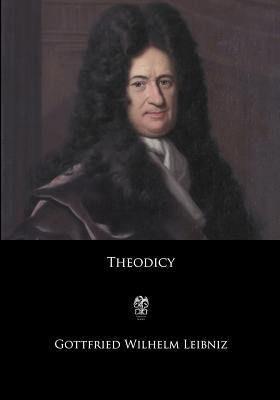
Leibniz Theodicy
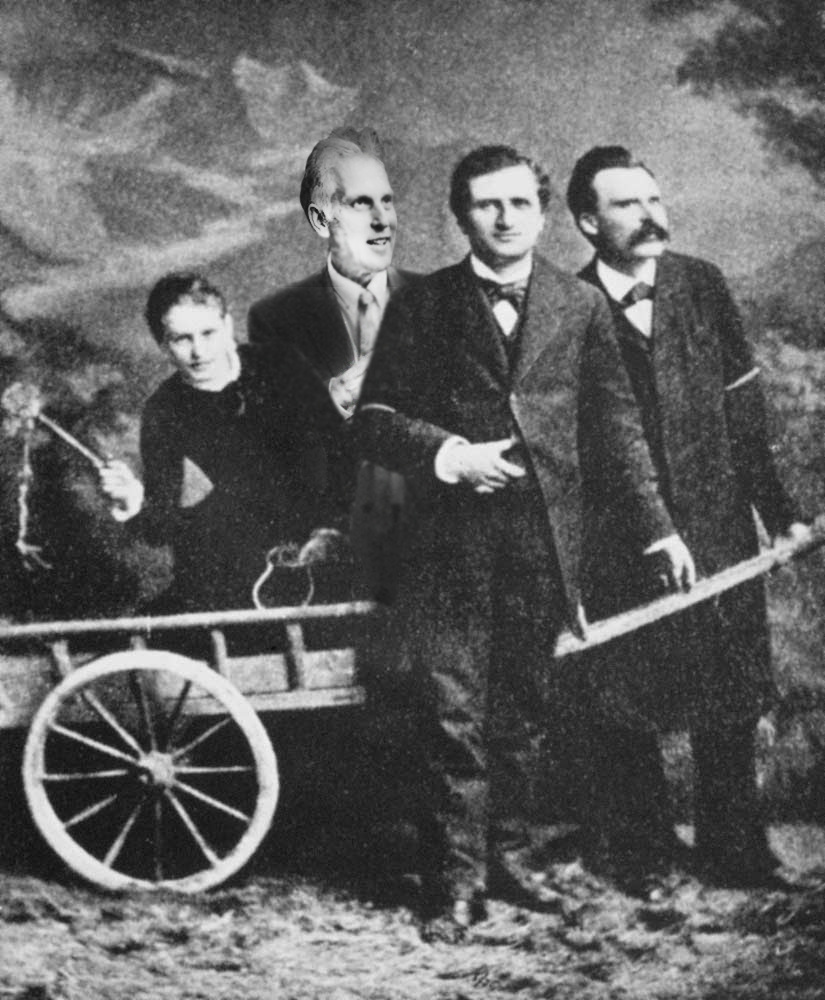 About The Author
About The Author
Richard Marshall is biding his time